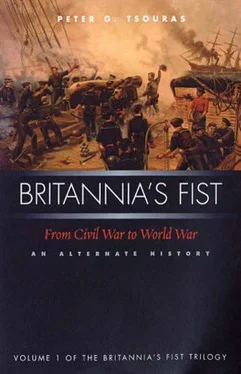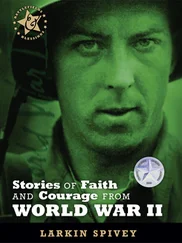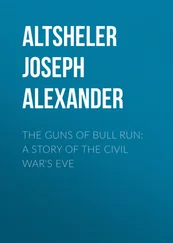Peter Tsouras - Britannia's Fist - From Civil War to World War
Здесь есть возможность читать онлайн «Peter Tsouras - Britannia's Fist - From Civil War to World War» весь текст электронной книги совершенно бесплатно (целиком полную версию без сокращений). В некоторых случаях можно слушать аудио, скачать через торрент в формате fb2 и присутствует краткое содержание. Год выпуска: 2008, ISBN: 2008, Издательство: Potomac Books Inc., Жанр: Альтернативная история, на английском языке. Описание произведения, (предисловие) а так же отзывы посетителей доступны на портале библиотеки ЛибКат.
- Название:Britannia's Fist: From Civil War to World War
- Автор:
- Издательство:Potomac Books Inc.
- Жанр:
- Год:2008
- ISBN:9781574888232
- Рейтинг книги:3 / 5. Голосов: 1
-
Избранное:Добавить в избранное
- Отзывы:
-
Ваша оценка:
- 60
- 1
- 2
- 3
- 4
- 5
Britannia's Fist: From Civil War to World War: краткое содержание, описание и аннотация
Предлагаем к чтению аннотацию, описание, краткое содержание или предисловие (зависит от того, что написал сам автор книги «Britannia's Fist: From Civil War to World War»). Если вы не нашли необходимую информацию о книге — напишите в комментариях, мы постараемся отыскать её.
Britannia's Fist: From Civil War to World War — читать онлайн бесплатно полную книгу (весь текст) целиком
Ниже представлен текст книги, разбитый по страницам. Система сохранения места последней прочитанной страницы, позволяет с удобством читать онлайн бесплатно книгу «Britannia's Fist: From Civil War to World War», без необходимости каждый раз заново искать на чём Вы остановились. Поставьте закладку, и сможете в любой момент перейти на страницу, на которой закончили чтение.
Интервал:
Закладка:
Yet the thought of an open-ocean voyage and the excitement of New York pushed thoughts of geopolitics from Midshipman Rimsky-Korsakov’s mind. He was intrigued by the squadron commander, whom he watched walking the bridge of the Nevsky . Adm. Stefan S. Lisovsky was a seaman to be reckoned with by all accounts. He was notorious for his irascible and ungovernable temper. Nikolai remembered a lieutenant telling the boys as Lisovsky’s appointment was announced, “Do you know what they say of him? In his last command, in a fit of wrath, he had rushed up to a sailor, guilty of some offense, and bitten off his nose!” The lieutenant crossed himself, “Dear God, it will be an interesting voyage. At least, you will be comforted, my boys, to know that the admiral felt badly enough about the nose-biting to get the poor man a pension.”
Nikolai rubbed his own nose.
WAR DEPARTMENT, WASHINGTON, D.C., 3:43 PM, JULY 15, 1863
He was an impatient man, Thomas Francis Meagher “Meagher of the Sword,” hero of the Young Ireland Movement, the gallant Gael who had led the Irish Brigade into the teeth of hell through the cornfields of Antietam and up the cold slopes of Marye’s Heights above Fredericksburg. Now an impatient man in civilian clothes, his resignation had been moldering for four months in some War Department file. He wanted it back. Hat in hand he had come from New York to retrieve his commission as brigadier general with a promise to raise three thousand Irish to fight for the Stars and Stripes and for the green flag of Ireland-the mystic golden harp on the emerald green field.
President Lincoln had shown interest in his offer, and Meagher had come to Washington to see it through. Now he cooled his heels in the lobby of the War Department building as officers and clerks scurried about, stirred by the bloody riots in New York. Meagher was heartsick that his own people had raised their hands against their new country. He had argued again and again that the road to a new life in this country was to share its battles. And many had flocked to the colors. His own Irish Brigade, now death-shrunk through too many battles, had marched off full of enthusiasm a year ago. So much had soured since then. The Copperheads and the Democrats had seduced too many of his people to turn their backs on this country in its hour of peril. Too many had swallowed the lie that it was a nigger war to set the black man up above them. The Irish were not about to compete for last place. To many of them, coming to America had not been the choice of a new beginning, a bright future-it had been the simple choice to flee blighted Ireland or starve.
Churning this pool of bile were the Fenians, the secret society bent on the independence of Ireland and possessed of a primal hatred of England. They saw the war for the Union as a distraction from their goal of Irish independence. Some did see a value in military service-to train the exiled Irish to form an army and filibuster the conquest of Canada from an American base. As far-fetched as it seemed, the thought was to trade Canada for Ireland’s independence. Meagher had fashioned an argument that would allow a man to serve both the land of his birth and the land of his refuge. Freedom was his cause, suckled on Ireland’s green, but he was a generous friend to it everywhere else. He saw it as a duty for every liberty-loving man to fight for the preservation of the Union and freedom. The Irish would do best to fight alongside each other. “I hold that if only one in ten of us come back when this war is over, the military experience gained by that one will be of more service in a fight for Ireland’s freedom than would that of the entire ten as they are now.” 8
No man had greater credentials and greater respect as an Irish patriot. He was cast in the mold of an Irish prince-proud, brave, gifted with the magic of words, and fey marked. He was also a gracious gentleman, with that extra touch of bearing that the Irish so admired in their leaders. In his bid for Ireland’s freedom, they had called him “Meagher of the Sword,” a title he treasured above all others. Ireland had made him a hero when his conspiracy to free Ireland was betrayed and he mocked the judge who held his life in his hand. Fame and exile to Australia followed. Greater fame fell on him in his daring escape that brought him to America.
However, he was also a man who could not see an endeavor through, and his soaring spirit all too often fell into a bottle when the heat of battle had cooled. His drunkenness had become more than a whisper. His resignation after Chancellorsville had been accepted with an all too obvious alacrity.
A clerk now interrupted his pacing. “I’m sorry, sir, but the Secretary is so pressed by business that he finds it impossible to set an appointment at this time.”
“But I have a letter from the President authorizing me to…”
“Yes, sir, many people have such letters, but Secretary Stanton has only so much time.”
Meagher’s hand tightened on his cane but relaxed when he recognized Charles Dana entering the lobby. Dana was Edwin Stanton’s assistant secretary of war. Meagher walked briskly to him, “Dana, so good to see you again.”
Dana was used to office seekers and politicians swarming around him, but Meagher was more than an annoyance. He was a presence, tall and thickset but graceful, with a shock of fine brown hair, penetrating green eyes, and the coiled power of a wolfhound. “Well, hello, Meagher. What brings you to Washington?” It was a question he instantly regretted.
Meagher poured out his distress. Dana took him by the arm into his office. “I’ll not hide it from you, Meagher, but the Irish are in a bad odor at this time. The government wonders if the Irish can be trusted now.”
“Trusted? By God, sir, that question was not asked on all the blood-soaked fields my brigade fought upon.”
“The riots in New York were Irish-led; we can deal with only one rebellion at a time. If you want to be of service, wean your people away from the disloyal elements that have them in such thrall. Then we can talk of another Irish brigade. Right now Stanton will not hear of it.”
Stanton was trying to make sure Lincoln heard no more of it either, but later the President brought the subject up again and asked how Meagher was doing. Stanton huffed that the Irishman had lost interest. Lincoln was surprised and replied, “Did you ever know an Irishman who would decline an office, or refuse a pair of epaulets, or do anything but fight gallantly after them?”
USS NANSEMOND AT SEA OFF WILMINGTON, NORTH CAROLINA, 10:15 AM, AUGUST 1, 1863
The lookout in the crow’s nest shouted out, “Ahoy! Black smoke to the southwest!” Battle stations sounded, scattering men to their posts. The engines pulsed with heaps of coal-fired energy as the Nansemond turned after its prey.
She had been built just the year before as a side-wheel steamer of four hundred tons and named the James Freeborn and taken into service as a blockade ship. Her speed of almost fifteen knots was enormous but necessary if the Navy was to intercept the even fleeter blockade-runners being built in Britain. She had taken the name of Nansemond , the James River tributary of that name, to honor the intrepid successes her new commander had won on that river. This twenty-five-year-old naval prodigy, Lt. Roswell Hawks Lamson, had been second in the Annapolis class of 1862. Under his hands, she raced through the waves.
It was a rare navy that would allow one so young to trod his own quarterdeck as captain, but national crisis brought out talent, and Lamson’s hard fighting on the Virginia rivers had delighted the old admirals. They could not reward him fast enough for the qualities that were a premium in this grinding war against a resourceful and valiant foe. They called his skill “Lamson’s Luck,” though “luck” was not the half of it.
Читать дальшеИнтервал:
Закладка:
Похожие книги на «Britannia's Fist: From Civil War to World War»
Представляем Вашему вниманию похожие книги на «Britannia's Fist: From Civil War to World War» списком для выбора. Мы отобрали схожую по названию и смыслу литературу в надежде предоставить читателям больше вариантов отыскать новые, интересные, ещё непрочитанные произведения.
Обсуждение, отзывы о книге «Britannia's Fist: From Civil War to World War» и просто собственные мнения читателей. Оставьте ваши комментарии, напишите, что Вы думаете о произведении, его смысле или главных героях. Укажите что конкретно понравилось, а что нет, и почему Вы так считаете.












